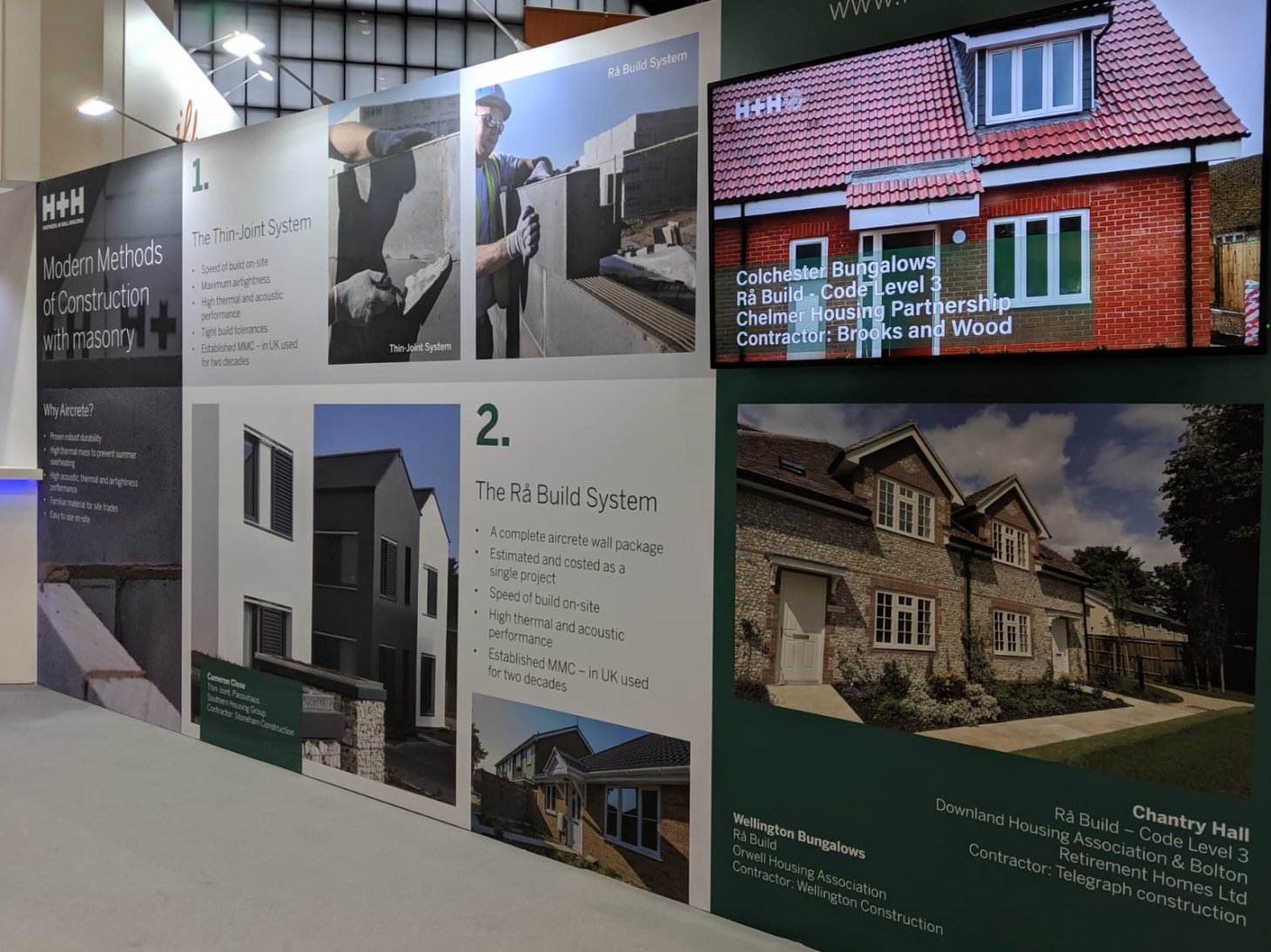
I was delighted to attend the recent Chartered Institute of Housing conference in Manchester on behalf of H+H where we demonstrated our MMC solution, Celcon Elements. Theresa May’s surprise last-minute appearance at Housing 2019 attracted throngs of delegates, eager to hear what the outgoing Prime Minister had to say. May was on good form (even joking that she had someone on hand with cough sweets, just in case) but her speech was not met with universal acclaim.
Perhaps one of the most notable reactions was from Jennifer Williams, Political Editor of the Manchester Evening News who noted that May’s positive, upbeat assessment of the current state of the industry was a far cry from the housing professionals’ experience on the ground.
May used the majority of her speech to remind delegates of the progress made under her government and reiterated calls for faster and better-quality housebuilding. She announced that a consultation on ending so-called “no fault evictions” is expected to start soon and we can also expect to see “radical and far-reaching” proposals for reforming the social rented sector published in September – regardless of who the new Prime Minister is.
May also set out her ambitions for enforcing Nationally Described Safe Standards but conceded this will ultimately be up to her predecessor whether to take these proposals forward or kick them into the long grass as Brexit once again takes centre stage.
Elsewhere during Housing 2019, delegates heard how the effect of lifting the HRA borrowing cap (perhaps one of May’s best policies for the industry?) is having on councils.
Councils are now building more homes since 1990 and in the case of Bristol, have ambitions to deliver up to 1,000 homes for social rent per year. Of course, local authorities won’t be able to deliver all of these homes themselves and there was a clear desire for more partnership working between the public and private sector at Housing 2019.
MMC was inevitably a key talking point of the conference and the industry seems to be divided over the issue. Local councils are keen to adopt modular build as a method of delivery, seeing it as the solution to meeting ambitious housing targets on time. However, there are still significant concerns that remain such as overheating, mortgage availability and the practicalities of delivering complete houses to site (without the need for a police escort).
Nevertheless, the message from Housing Minister Kit Malthouse was that the industry must shed these reservations and embrace MMC as a matter of urgency. His interview on the MMC stage on the first day of conference pulled no punches and he confirmed the government is putting “significant funding behind trying to stimulate MMC” and wants to see new homes built as fast as possible in order to meet the 300,000 units a year target.
In a post speech interview with the Local Government Chronicle. Malthouse did hint at a potential shift in allowing councils to retain a greater proportion of receipts from the sale of homes under Right to Buy – currently councils are only able to retain a third of their receipts which means many are failing to replace houses like for like, leading to a net loss of housing units and increased housing need. It does not quite match the demands from the industry (Chief Executive of the Chartered Institute of Housing Terrie Alafat opened the conference by calling for the controversial Right to Buy policy to be scrapped altogether) but it might help to ease the situation in some way.
“There is a real sense from the industry that they just want to get on with it”, said Danielle Gillespie from Homes England at one of the fringe events. This was a theme that cropped up again and again during the conference. The housing industry now finds itself like a dog straining at a leash – eager to move forward but constrained by a government that is still playing catch-up. With the distraction of a Conservative leadership contest and Brexit on the horizon, will we have to wait a little while longer for the industry to be able to fulfil its potential?